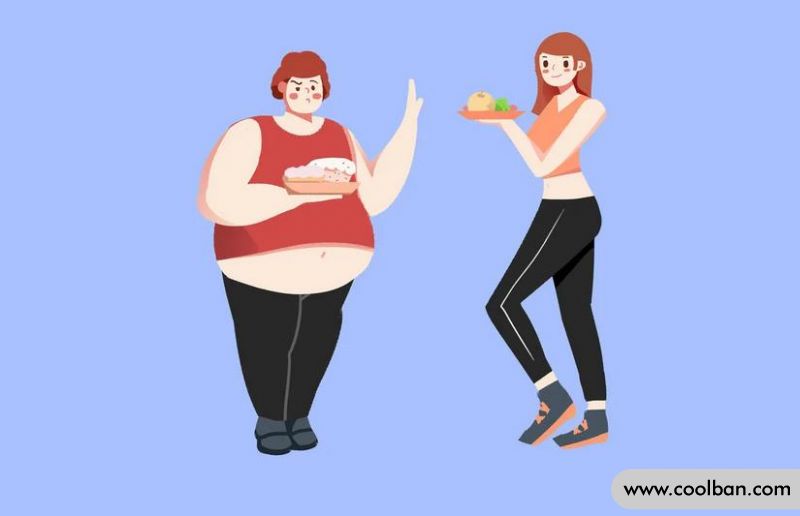What should I do if I become constipated during weight loss?
2022-03-18
Does losing weight cause constipation
If it is the wrong way to lose weight, it may lead to constipation, and constipation can easily lead to obesity, so this is a vicious circle. Generally speaking, the cause of constipation caused by weight loss is closely related to diet.
Reduced food intake during weight loss, especially when carbohydrates (grains) are reduced, is prone to gastrointestinal fiber deficiency. Combined with a lot of exercise, it can lead to water loss from the body. Especially prone to constipation. Some people eat too little because of diets, especially staple foods. In this way, it is necessary to ensure the amount of diet in order to have a bowel movement. Some people eat too few vegetables for three meals a day, so they should eat more vegetables. The dietary fiber in vegetables can help you. Some people drink too little water, remember to drink more water, in short, it is the right medicine!
Reduce food intake, reduce stool volume, and reduce frequency of bowel movements. Secondly, the amount of water that should be taken from the diet is reduced, and the intestines will absorb water from the stool, resulting in dry stools in the intestines, leading to constipation. In addition, dieting will inevitably reduce the intake of oily foods. The intestines lack oily lubrication, and other food residues that have been absorbed by the intestines will become more and more dry, and all of them will be blocked in the intestines, making it difficult to defecate. The intestinal wall is like an accordion's bellows, with many folds, and fat and muscle are attached to the outer wall of the folded depressions. Excessive dieting can also reduce fat and muscle in the outer lining of the gut, extending the entire length of the gut. The longer the bowel movement, the longer the bowel movement, the more water will be absorbed during this time, making the stool hard and dry and difficult to pass.

Why does losing weight cause constipation?
1. Eat too little
During weight loss, we consciously eat less food. Lack of food stimulation in the intestine will impair peristalsis and naturally lose normal excretory function. If you diet for a long time to lose weight, it may also lead to intestinal disorders and damage the spleen and stomach.
2. Too fine diet, too low dietary fiber intake
In our daily diet, we eat more refined staple foods such as rice and white flour, and rarely eat coarse grains such as millet and corn. The amount of vegetables is more difficult to guarantee, then our diet will lack the dietary fiber necessary for intestinal peristalsis.
3. The season is dry and the drinking water is insufficient
Autumn and winter in the north are generally drier. Like Beijing, winters are long. Even if you drink water every day, you can still feel thirsty. However, some sedentary people forget to drink water when they are busy, resulting in dry stools and prone to constipation even if they do not lose weight.
4. Too little fat
After deciding to lose weight, many people will enter the grass-eating mode, for fear of accidentally eating too much and falling short. Therefore, too little fat intake is also a cause of constipation. The gut is like a car, and it also needs oil to lubricate the wastes out of the body. Therefore, you should also make sure to consume a certain amount of healthy fats during your weight loss.
5. Insufficient physical activity
People who want to lose weight are unlikely to have this problem, but many women don't like exercise and choose to simply diet to lose weight. Constipation is normal if you eat less and don't move.

What should I do if weight loss causes constipation?
Increase dietary fiber intake
Constipation caused by dieting to lose weight is generally caused by insufficient stool formation due to reduced diet. Therefore, at this time, the intake of dietary fiber can be appropriately increased, which can effectively promote gastrointestinal motility, increase stool volume, and form defecation. Moreover, this crude fiber itself is not absorbed by the intestine, so it will not cause obesity, nor will it affect the effect of trying to lose weight.
Drink a spoonful of vinegar in the morning on an empty stomach
Mature vinegar is rich in amino acids and a large number of enzymes that promote digestion, which can promote intestinal peristalsis, maintain the balance of intestinal flora, and treat habitual constipation without toxic side effects. In addition, drinking vinegar can also help you lose weight. But this method is not suitable for gastric ulcers and hyperacidity.
Clockwise massage the stomach
Frequent massage of the stomach can not only increase gastrointestinal motility, strengthen the spleen and stomach, but also clear the meridians and reconcile qi and blood. In addition, massage the stomach clockwise in the direction of the peristalsis of the intestines to relieve constipation. It should be noted that it should not be done immediately after a meal, but half an hour after a meal.
Eat more fermented foods
These healthy foods contain beneficial microbes essential for the human gut. Not only do they help with digestion and promote bowel movements, but they also prevent arteriosclerosis and skin aging. Eating healthy fermented foods and getting some exercise can help prevent constipation.
If it is the wrong way to lose weight, it may lead to constipation, and constipation can easily lead to obesity, so this is a vicious circle. Generally speaking, the cause of constipation caused by weight loss is closely related to diet.
Reduced food intake during weight loss, especially when carbohydrates (grains) are reduced, is prone to gastrointestinal fiber deficiency. Combined with a lot of exercise, it can lead to water loss from the body. Especially prone to constipation. Some people eat too little because of diets, especially staple foods. In this way, it is necessary to ensure the amount of diet in order to have a bowel movement. Some people eat too few vegetables for three meals a day, so they should eat more vegetables. The dietary fiber in vegetables can help you. Some people drink too little water, remember to drink more water, in short, it is the right medicine!
Reduce food intake, reduce stool volume, and reduce frequency of bowel movements. Secondly, the amount of water that should be taken from the diet is reduced, and the intestines will absorb water from the stool, resulting in dry stools in the intestines, leading to constipation. In addition, dieting will inevitably reduce the intake of oily foods. The intestines lack oily lubrication, and other food residues that have been absorbed by the intestines will become more and more dry, and all of them will be blocked in the intestines, making it difficult to defecate. The intestinal wall is like an accordion's bellows, with many folds, and fat and muscle are attached to the outer wall of the folded depressions. Excessive dieting can also reduce fat and muscle in the outer lining of the gut, extending the entire length of the gut. The longer the bowel movement, the longer the bowel movement, the more water will be absorbed during this time, making the stool hard and dry and difficult to pass.

Why does losing weight cause constipation?
1. Eat too little
During weight loss, we consciously eat less food. Lack of food stimulation in the intestine will impair peristalsis and naturally lose normal excretory function. If you diet for a long time to lose weight, it may also lead to intestinal disorders and damage the spleen and stomach.
2. Too fine diet, too low dietary fiber intake
In our daily diet, we eat more refined staple foods such as rice and white flour, and rarely eat coarse grains such as millet and corn. The amount of vegetables is more difficult to guarantee, then our diet will lack the dietary fiber necessary for intestinal peristalsis.
3. The season is dry and the drinking water is insufficient
Autumn and winter in the north are generally drier. Like Beijing, winters are long. Even if you drink water every day, you can still feel thirsty. However, some sedentary people forget to drink water when they are busy, resulting in dry stools and prone to constipation even if they do not lose weight.
4. Too little fat
After deciding to lose weight, many people will enter the grass-eating mode, for fear of accidentally eating too much and falling short. Therefore, too little fat intake is also a cause of constipation. The gut is like a car, and it also needs oil to lubricate the wastes out of the body. Therefore, you should also make sure to consume a certain amount of healthy fats during your weight loss.
5. Insufficient physical activity
People who want to lose weight are unlikely to have this problem, but many women don't like exercise and choose to simply diet to lose weight. Constipation is normal if you eat less and don't move.

What should I do if weight loss causes constipation?
Increase dietary fiber intake
Constipation caused by dieting to lose weight is generally caused by insufficient stool formation due to reduced diet. Therefore, at this time, the intake of dietary fiber can be appropriately increased, which can effectively promote gastrointestinal motility, increase stool volume, and form defecation. Moreover, this crude fiber itself is not absorbed by the intestine, so it will not cause obesity, nor will it affect the effect of trying to lose weight.
Drink a spoonful of vinegar in the morning on an empty stomach
Mature vinegar is rich in amino acids and a large number of enzymes that promote digestion, which can promote intestinal peristalsis, maintain the balance of intestinal flora, and treat habitual constipation without toxic side effects. In addition, drinking vinegar can also help you lose weight. But this method is not suitable for gastric ulcers and hyperacidity.
Clockwise massage the stomach
Frequent massage of the stomach can not only increase gastrointestinal motility, strengthen the spleen and stomach, but also clear the meridians and reconcile qi and blood. In addition, massage the stomach clockwise in the direction of the peristalsis of the intestines to relieve constipation. It should be noted that it should not be done immediately after a meal, but half an hour after a meal.
Eat more fermented foods
These healthy foods contain beneficial microbes essential for the human gut. Not only do they help with digestion and promote bowel movements, but they also prevent arteriosclerosis and skin aging. Eating healthy fermented foods and getting some exercise can help prevent constipation.
